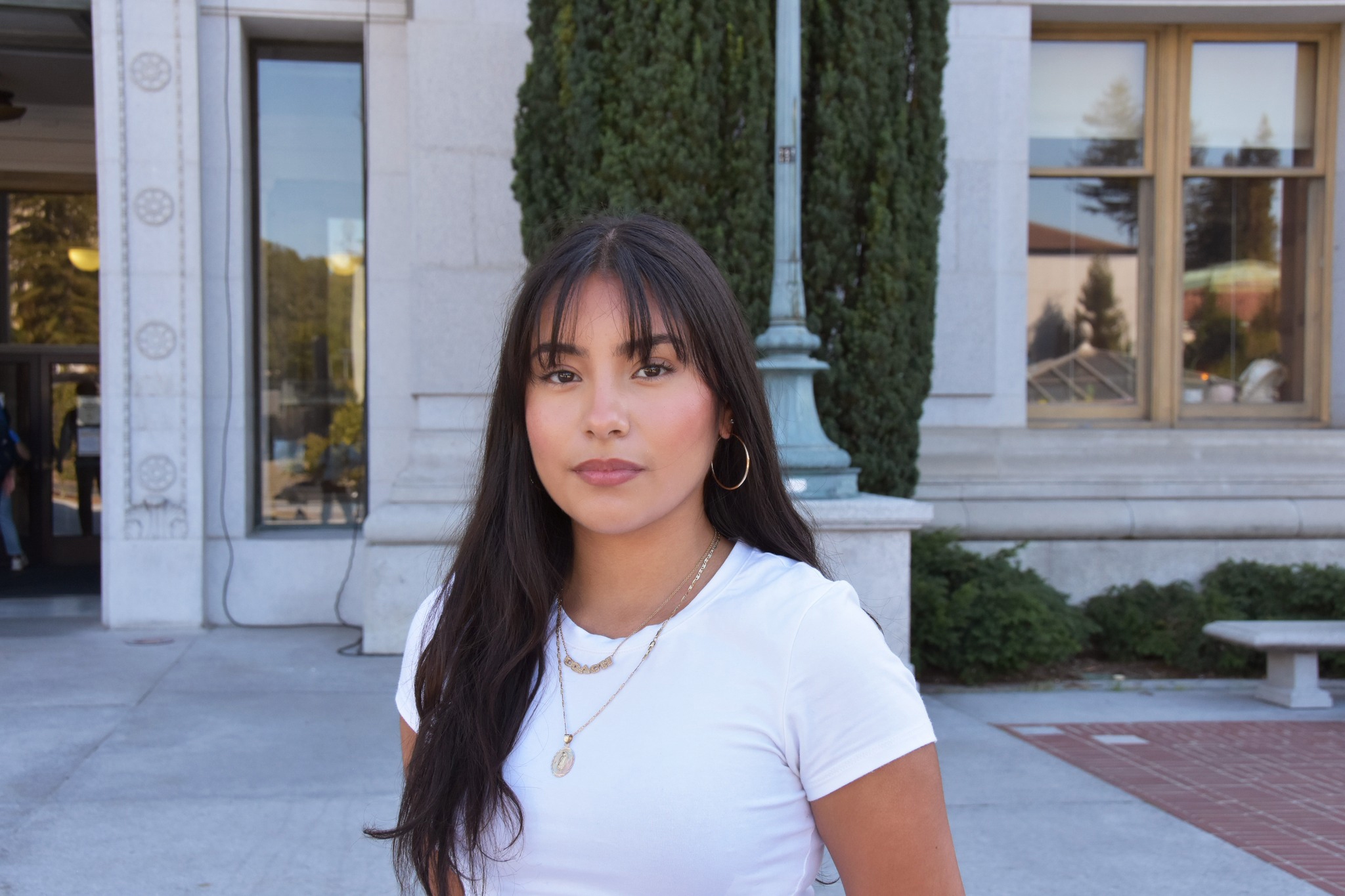‘I’m just one of millions of migrant students working hard to achieve their goals’

Sashu Machani/UC Berkeley
October 21, 2024
In this first-person narrative, Yesenia Ochoa, a first-year student at UC Berkeley, tells UC Berkeley News about her experience being a student from a migrant family and her educational aspirations.
“I grew up in Yuba City. My parents immigrated there from a little village on the side of a hill called Las Estacas in Michoacan, Mexico, when they were 23. They work in the fields — agriculture is a huge industry in the region — so they leave really early in the morning to harvest peaches, walnuts, tomatoes, almonds, almond fields, things like that.
As teenagers, my older sister and I spent our summers helping them pick peaches. My little sister is allergic to peach fuzz, so she doesn’t do it. But they never forced us or anything; they just said we could help if we wanted to. I was like, “Let me go with you! I can handle it! I can do it!”
I’m the first one to go to a four-year college in my family. It was something that was super-duper scary, but that I knew I had to do. I knew it. Sometimes you need to be in an uncomfortable position to grow. I knew I had to leave Yuba City in order to travel the world and be who I want to be. It’s a big responsibility I carry with me. All my family — parents, sisters, aunts and uncles — they’re all texting me asking how it’s going, asking me to send pictures. It reminds me not only how hard I worked to be here, but how hard they all worked for me to get me here. It was their effort, too.
I applied to every scholarship I could find. I didn’t want to burden my parents financially. One that I received was a national scholarship of the Migrant Education Program for students whose parents work in the fields. They usually take one student, but this year they took three. They flew us out to a conference in Portland, Oregon. The conference was full of students from migrant families. It felt really, really nice to see so many people — counselors and teachers — who are dedicating their lives to give students like me the opportunity to go to college. It reminded me that I’m just one of millions of migrant students who are working really hard to achieve their goals and create more possibilities for generations that come after us.
At Berkeley, I want to study something creative in the humanities. I’ve always loved reading and writing, so maybe I’ll try screenwriting in the Department of Film and Media. Whatever I’m writing, as long as I’m passionate about it, I forget everything else because I’m so deeply invested in it. As long as I have a job where I can write and see the world, I’ll be personally fulfilled in my career. I don’t need to be remembered by someone else or by the whole world. I’ll remember for myself.
I know, eventually, I will be sad about leaving Berkeley. But if I’m sad about leaving a place, then I know that I did what I had to do. Like, I lived there the right way. And I should just be thankful I had that opportunity and made such great memories and go on to the next phase of my life.”